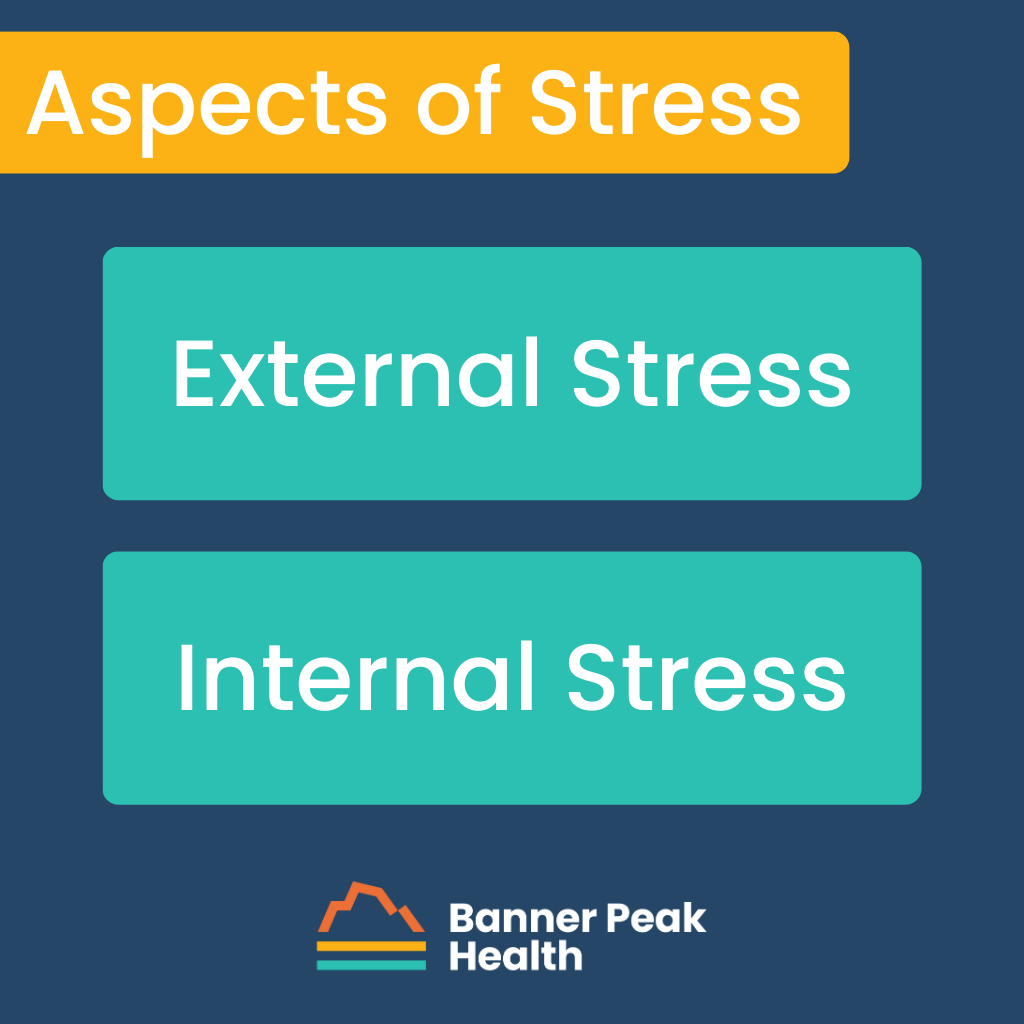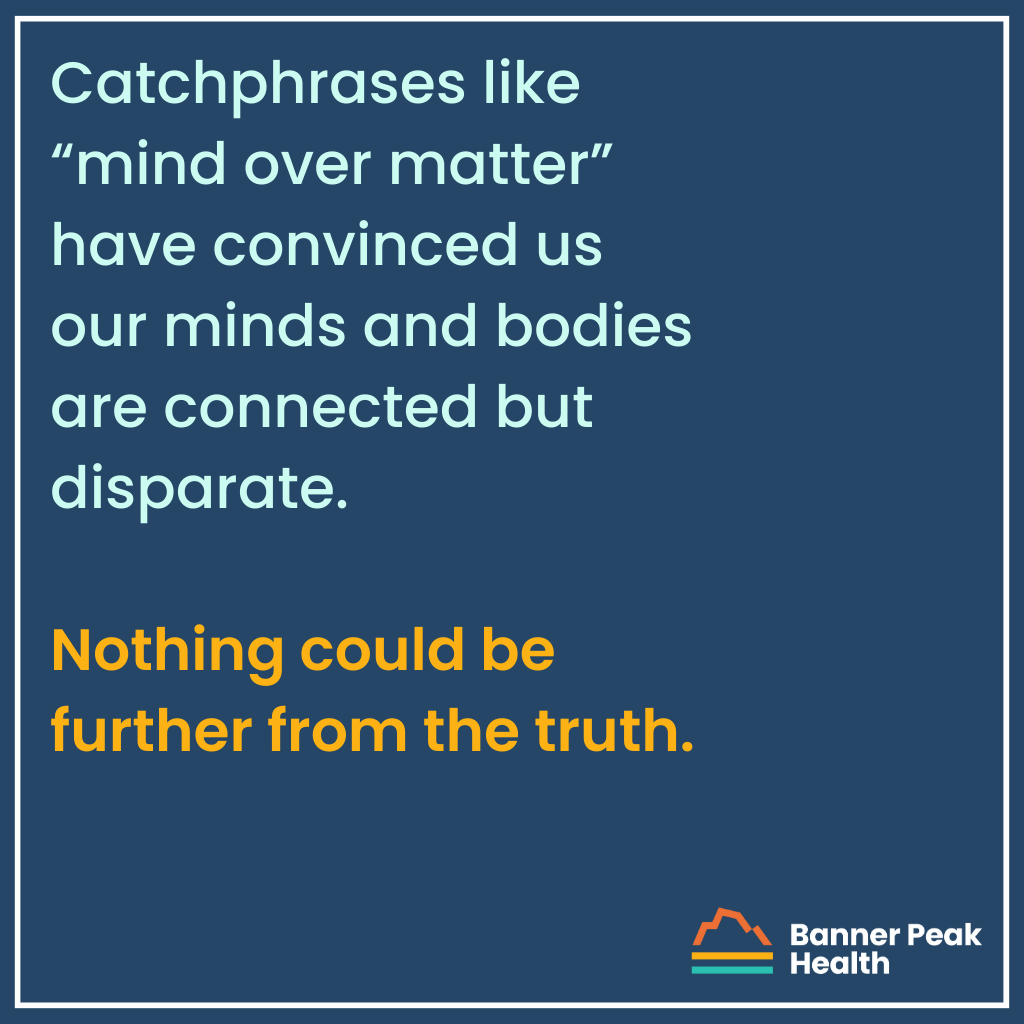Some people experience a wide range of physical symptoms as a result of unmanaged stress. A clenching jaw is one of them.
Clenching your jaw can lead to unpleasant side effects such as headaches, dental issues, soreness, and disturbed sleep. We’ll explore those later.
While there are many “lists” online that explain, on a superficial level, how to stop jaw-clenching from stress, I believe we need to look deeper. We need to look at the stress itself.
What Is Stress?
I often ask new patients to complete a form titled “Perceived Stress Scale.” The term “perceived stress” encompasses two aspects of stress:
- External stress. These are the more obvious contributing factors. For example, it’s stressful if someone cuts you off in traffic or if you have financial difficulties.
- Internal stress. This is the aspect of stress we often overlook. The term “perceived” incorporates the concept of how your internal self can evaluate, cope with, and handle stress.
I look at both a patient’s external and internal stress to best understand where their symptoms, such as a clenching jaw, are stemming from.
Two Phases of Coping
Not only are there two aspects of stress, but there are also two methods of coping with stress. I often explain these methods as “young adult stress coping” and “mature adult stress coping.”
These don’t relate to our chronologic age; rather, they refer to the mechanisms we use to manage the two aspects of stress.
Young adult stress coping is based on the stress we perceive externally around us. For instance, if a college student is taking too many courses, her solution may be to drop her economics class before the midterm. By modifying her external world, she’s brought her stress to a manageable level.
Mature adult stress coping is the opposite. If we live long enough, we will eventually confront major stressors beyond our control: serious health problems in ourselves and others, losing loved ones, etc.
The question becomes how we cope with and adapt to stress that we cannot modify externally.
Stress Inbox and Outbox
When I instruct patients on how to stop clenching their jaw from stress, I encourage them to imagine that their stress has an inbox and an outbox.
I like this metaphor because it resonates. We’re all acutely aware of what comes into our email inboxes. What is more difficult for people to understand, and where I focus, is the stress outbox — or, how we cope with stress.
When working on identifying, developing, and building a stress outbox, I look at two categories: lifestyle factors, and social connection and structure.
Lifestyle factors include things like exercise, sleep, diet, and substance use. I also like to look at social connection and structure: the presence of a religious community, clubs, groups of friends, and a supportive family. These networks have a huge impact on our emotional health as well.
I’ve been surprised by the number of people who can’t come up with an answer when I ask, “What’s in your stress outbox?”
To their silence, I reply, “We have work to do.”
Biology of Emotions
Catchphrases like “mind over matter” have convinced us that our minds and bodies are connected but disparate. Nothing could be further from the truth.
To even ask “are the mind and body connected?” is to misunderstand that they are one and the same. They’re not even two separate things that are “bridged.” They are inextricably linked.
In order to effectively treat the symptoms that manifest as a result of a stress inbox/outbox imbalance, we must begin with this understanding.
The Canary in the Coal Mine
Many of us, even some doctors, aren’t aware that our overall stress — or, having more stress coming into the inbox than going out through the outbox — can create real, biological problems.
A physical symptom of stress, such as a clenching jaw, is the canary in the coal mine. It’s a way your body warns you of an imbalance in your stress inbox/outbox.
If you ignore that warning and simply treat the symptom, it’s likely additional symptoms will manifest as your stress imbalance worsens. These symptoms include temporomandibular joint pain (TMJ), headaches, insomnia, heart palpitations, impaired concentration, irritability, nausea, and diarrhea.
Yes, the most common cause of a clenching jaw and jaw stress is the temporomandibular joint weakening from bruxism (teeth grinding). Statistically, wearing a mouth guard to bed may help the symptoms of a clenching jaw, but we can’t stop at the biology. We have to look deeper.
We have to learn how to listen to our bodies.
Today’s Takeaways
- How to stop clenching your jaw from stress: Statistically, plastic mouth guards offer significant relief from symptoms like teeth grinding, TMJ pain, and soreness. However, jaw-clenching is a symptom of a greater issue — unmanaged stress.
- There are two phases of coping: Young adult stress coping and mature adult stress coping. YA stress coping means modifying the external world to manage stress. MA stress coping means adapting to stress we cannot control externally.
- Your body has a stress inbox and outbox: Your outbox is influenced by two categories: lifestyle factors (diet, exercise, sleep) and social connections and structure (family, friends, religious community). Your physical health relies on your ability to manage and balance your stress outbox.
Your mind and body are one and the same. When your mind is out of balance, your biological health suffers.
The physical manifestations of stress comes in the form of symptoms such as headaches, insomnia, trouble concentrating, and more. These are the canaries in the coal mine, warnings that your body is out of balance.
To stop clenching your jaw, practice listening to your body. Pay attention to what it’s trying to tell you, and rather than just treating the symptom, get all the way to the root of the problem.

Barry Rotman, MD
For over 30 years in medicine, Dr. Rotman has dedicated himself to excellence. With patients’ health as his top priority, he opened his own concierge medical practice in 2007 to practice medicine in a way that lets him truly serve their best interests.





